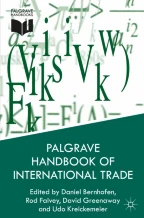
Strongly influenced by the perception that restricted commerce and preferences in trade relations had contributed to the economic depression of the 1930s and the subsequent outbreak of war, the discussions leading to the General Agreement on Tariffs and Trade (GATT) in 1947 were driven by the desire to create an international economic order based on a liberal and non-discriminatory multilateral trade system. Enshrined in Article I of the GATT, the principle of non-discrimination (commonly referred to as the most-favored-nation or MFN clause) precludes member countries from discriminating against imports based upon the country of origin. However, in an important exception this central prescript, the GATT, through its Article XXIV, permits its members to enter into preferential trade agreements (PTAs), provided these preferences are complete. In so doing, it sanctions the formation of Free Trade Areas (FTAs), whose members are obligated to eliminate internal import barriers, and Customs Unions (CUs), whose members additionally agree on a common external tariff against imports from non-members. Additional derogations to the principle of non-discrimination now include the Enabling Clause, which allows tariff preferences to be granted to developing countries (in accordance with the Generalized System of Preferences) and permits preferential trade agreements among developing countries in goods trade.
This is a preview of subscription content, log in via an institution to check access.
eBook EUR 181.89 Price includes VAT (France)
Softcover Book EUR 232.09 Price includes VAT (France)
Hardcover Book EUR 210.99 Price includes VAT (France)
Tax calculation will be finalised at checkout
Purchases are for personal use only